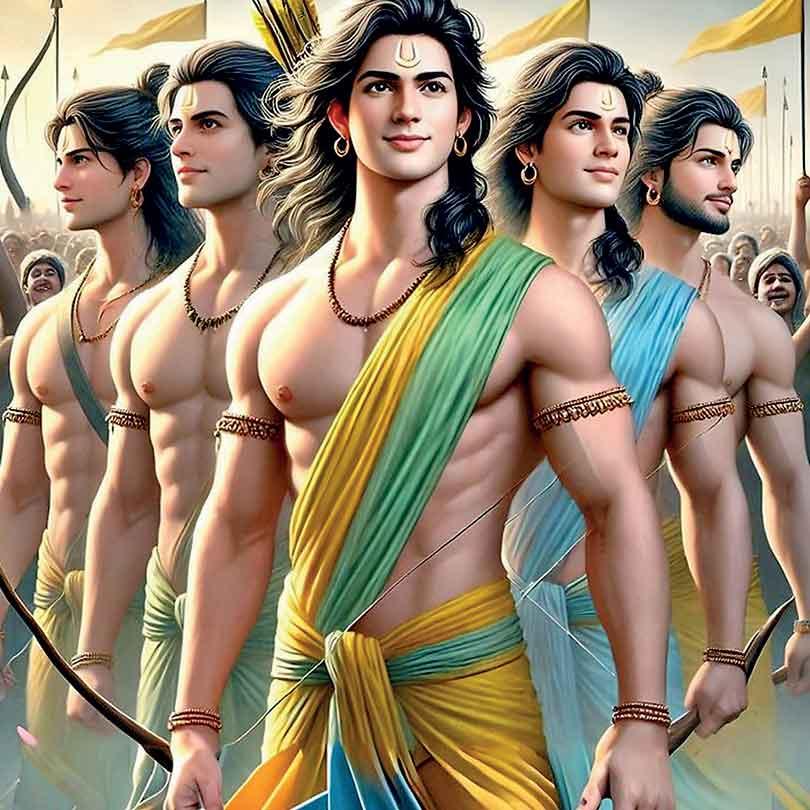
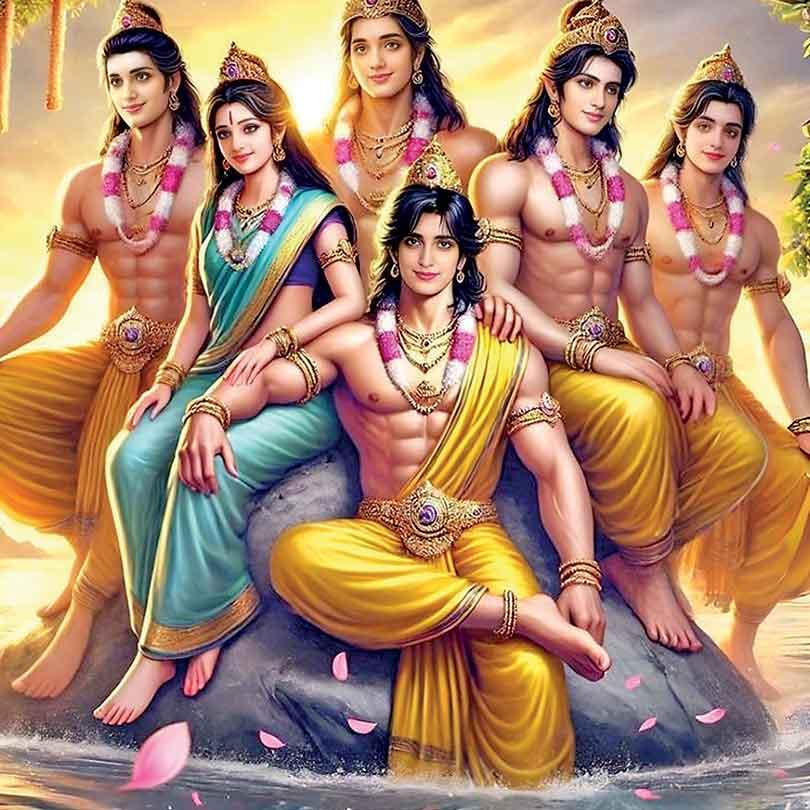
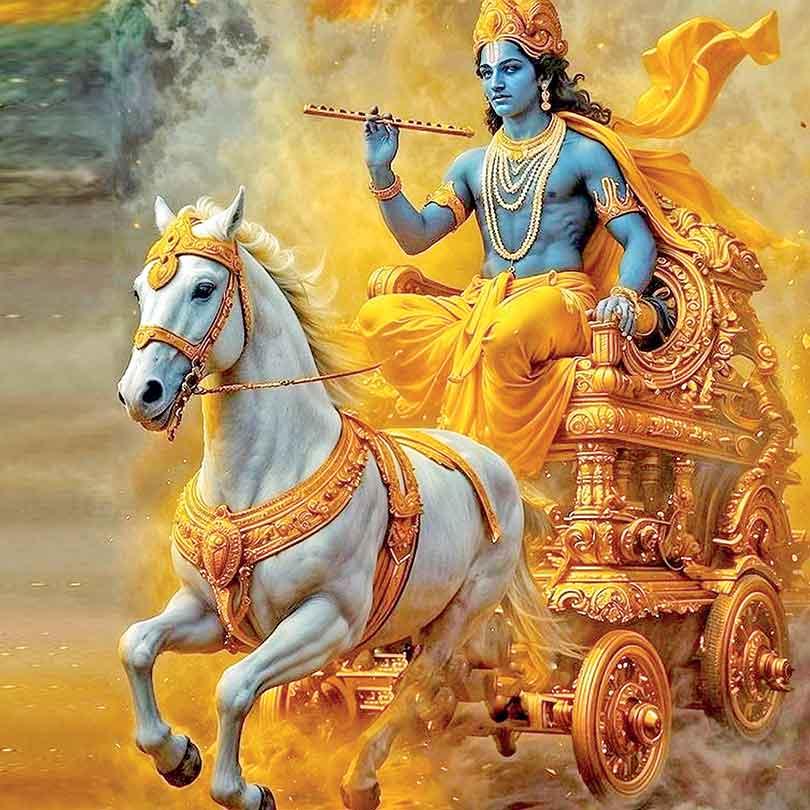
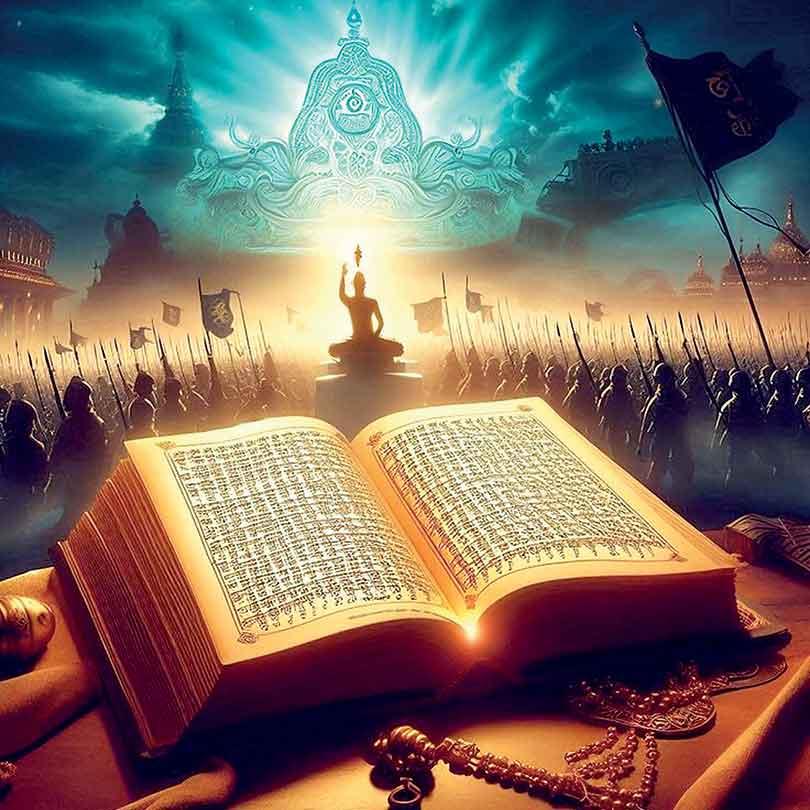
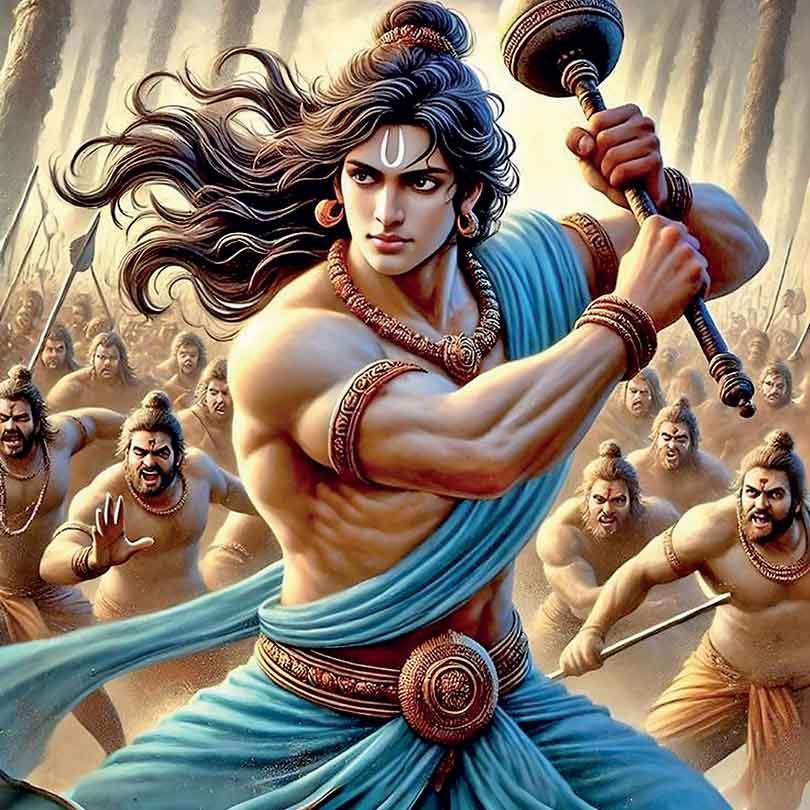
The Mahabharata is not a tale of simplistic morality. It does not offer us clean lines of good and evil. Instead, it plunges us into the grey zones of human experience.
At its core, the Mahabharata is about a family divided. It is the story of two sets of royal cousins, the righteous Pandavas and the proud Kauravas, who grow up together in the court of Hastinapura.
The Mahabharata is more than just the longest epic in history, it is one of the most powerful, complex, and emotionally resonant stories ever told. Emerging from the heart of ancient India, this sprawling Sanskrit masterpiece is attributed to the sage Vyasa, who not only composed the tale but also plays a pivotal role within it.
Stretching over 100,000 verses, it spans kingdoms, generations, and even cosmic realms. But beneath its mighty battles and divine interventions lies something far more intimate: a profound guide to life, to dharma (duty), and to the deeply human struggles that shape who we are.
At its core, the Mahabharata is about a family divided. It is the story of two sets of royal cousins, the righteous Pandavas and the proud Kauravas, who grow up together in the court of Hastinapura. They are bound by blood, trained by the same teachers, and raised under the same roof. Yet jealousy, ambition, and fate tear them apart. What begins as sibling rivalry soon spirals into a chain of betrayals, broken promises, and desperate oaths. And when dharma is questioned and honour challenged, the conflict escalates into a war that threatens to consume the known world.
The tale begins generations before the great war, with a king named Shantanu and a mysterious river goddess named Ganga. From their union is born Bhishma, a prince of unshakable will who renounces the throne for the sake of his father’s happiness, setting in motion a series of vows and sacrifices that echo through history. Years later, the royal lineage continues through Vichitravirya and Pandu, whose sons, the five Pandavas, will one day rise as heroes of their age: Yudhishthira the just, Bhima the mighty, Arjuna the archer without equal, and the twin brothers Nakula and Sahadeva, masters of sword and wisdom.
But the Pandavas’ rise to greatness is not without consequence. Their growing fame, skill, and virtue ignite a deep and dangerous envy in their cousin, Duryodhana, the eldest of the hundred Kaurava brothers. Born into privilege but consumed by the fear of being overshadowed, Duryodhana becomes the epic’s most complex antagonist. His hatred is not without reason, his fears not unfounded. Yet his ambition blinds him to justice, and his choices draw the kingdom into chaos.
The Mahabharata is not a tale of simplistic morality. It does not offer us clean lines of good and evil. Instead, it plunges us into the grey zones of human experience. Duryodhana may be arrogant and ruthless, but he is also a loyal friend and a fearless warrior. Karna, the tragic hero born from a divine secret and raised by charioteers, fights on the wrong side, but does so with unwavering dignity and honour. Even the noble Arjuna, the Pandavas’ greatest warrior, hesitates on the brink of battle, caught between love for his family and the duties of a kshatriya (warrior).
What truly sets the Mahabharata apart is its philosophical depth. At its heart lies the Bhagavad Gita, one of the most revered spiritual texts in the world. On the eve of battle, as the armies gather on the fields of Kurukshetra, Arjuna is overcome with despair. He sees before him his teachers, cousins, and friends on both sides of the conflict. He lays down his bow and refuses to fight.
In that still moment, time seems to stop. And Krishna, Arjuna’s charioteer, cousin, and divine incarnation, begins to speak.
Krishna does not command Arjuna to kill. Instead, he leads him through a cosmic dialogue on the nature of life, death, action, and duty. The Bhagavad Gita is not just a call to arms; it is a call to consciousness. It asks: What is right action? How do we live without attachment? What is our duty to others, and to ourselves? And how do we remain centred in a world of impermanence?
Back in the royal court, before the war begins, one of the most harrowing episodes unfolds. The Pandavas are invited to a rigged game of dice by their cunning uncle, Shakuni, Duryodhana’s chief advisor. Bound by the code of honour, they accept the invitation and lose everything. Their kingdom, their wealth, their freedom, even their shared wife, Draupadi, are all wagered and lost. Draupadi, a queen of immense strength and dignity, is dragged into the court and humiliated. Her vow for justice, and the silence of the elders who should have defended her, becomes one of the epic’s most damning indictments of power and patriarchy.
The Pandavas are forced into exile for thirteen years, twelve years in the forest and a final year in disguise. They endure, they learn, and they prepare. But even after their return, they seek peace. Yudhishthira, the eldest and most virtuous of the brothers, offers a compromise: give them just five villages. Duryodhana refuses to give even a needlepoint of land. And so, war becomes inevitable.
The Kurukshetra War is the climax of the Mahabharata, an eighteen-day cataclysm where brother fights brother, teacher faces student, and entire generations are wiped from the earth. The battle is not fought for wealth, or vengeance, or pride, it is fought over dharma, over the right to rule, and the very soul of the kingdom.
In the days to come, we will journey deeper into the stories that make the Mahabharata eternally compelling. We will meet Draupadi in her fullest form, not just as a wife, but as a fire-born woman of rage and resolve. We will uncover the truth of Karna, the secret son of Kunti and half-brother to the Pandavas, whose loyalty to Duryodhana masks a lifetime of rejection and pain. We will explore Krishna’s teachings, the fall of great heroes, and the price of war.
We will ask:
Who truly won the battle of Kurukshetra? Was it the Pandavas, who reclaimed their kingdom but lost nearly everyone they loved? Or was it a pyrrhic victory that left the world broken?
And finally, we will follow the Pandavas on their final journey to the Himalayas, as they renounce the world and seek salvation. Their deaths are not simply endings, but meditations on mortality and meaning.The Mahabharata endures not because it is ancient, but because it is timeless. It is a mirror to our own lives, our own choices, our own inner battles. In its vastness, it contains multitudes: mythology and history, ethics and metaphysics, love and loss. It teaches us that dharma is rarely simple, that truth is often painful, and that even gods walk among men, not to save us, but to remind us of our own potential.Stay tuned for the next chapters, where we will explore these unforgettable characters and moments in greater detail, and discover why, thousands of years later, the Mahabharata still speaks to the human soul.











